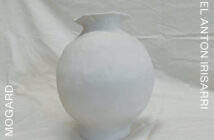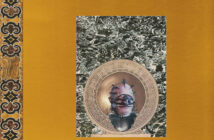
For all of Brisbane label Room 40’s buy-on-sight quality control it’s almost impossible to pin them down to a particular sound. Most releases however lie somewhere between the extremes of free-improv-chaos and carefully constructed aural bliss, with their latest, the aptly titled ‘Saunter’ by Tokyo-based laptopper Chihei Hatakeyama, arguably the most shamelessly beautiful recording the label has yet released. In approachability it tops even DJ Olive’s ambient works ‘Sleep’ and ‘Triage’, which challenged through duration and limited dynamic range; the six perfectly formed pieces which comprise ‘Saunter’, evoking ‘the transition from autumn to winter’ and reflecting Hatakeyama’s immersion in new domestic surroundings, are as attractive as these intended themes sound.
‘Saunter’ proceeds similarly to Hatakeyama’s 2006 debut ‘Minima Moralia’ for Kranky – gently wavering sine tones immersed in hazy webs of treated acoustic sounds and field recordings – with a less hurried pace, and a greater degree of developmental coherence. Each track follows a standard trajectory, loose, sparse patterns shifting and splitting into dense and more active arrangements, governed by an elusive yet detectable logic which moulds these pieces into complete and polished wholes. In ‘Treads Echoing Far Away From Sea Coast’, warm digital streams shimmer and fold, each tone gradually becoming clearer, cleaner, and more independent. Brief piano lines lie buried within ‘The Room in Past’, creeping to the surface, both raw and treated, before twisting completely into hazy threads of electronics. Guitars are treated similarly, their particular resonances more suited to Hatakeyama’s approach: ‘A Stone Inside the Box’ pits lazy runs of acoustic fingerpicking against gritty electric attacks; the closing ‘Landscape on a Hill’ cuts and reverses high-pitched notes, leaving these to slowly collapse into mournful electronic tones reminiscent of Klimek.
Despite running times of up to ten minutes, and a reliance on a restricted tonal pallette, nothing on ‘Saunter’ outstays its welcome. This I would put down to Hatakeyama’s earnest, clear-sighted approach to composition: there is none of the twee faux-naivete that too often affects work produced by his fellow countrymen – Shuta Hasunuma or Takagi Masakatsu, for instance. Consequently ‘Saunter’ is a rich, compelling success.
Joshua Meggitt



